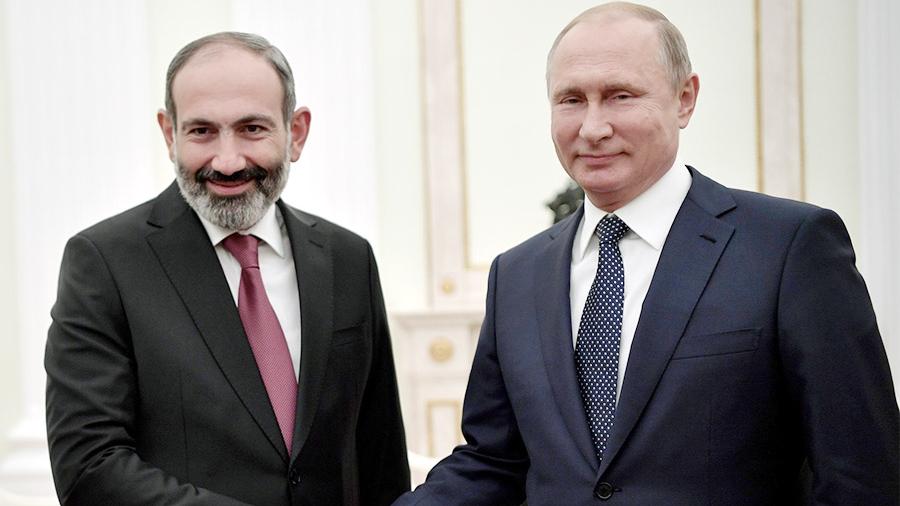Kenan AĞAZADE
The official visit of the Prime Minister of Armenia to Moscow took place amid internal political tensions and an extraordinary situation in the world.
The working visit was timed to coincide with the 30th anniversary of the establishment of diplomatic relations between Armenia and Russia.
Following the talks between Pashinyan and Putin, a 30-point joint statement on strengthening allied relations and implementing previously reached agreements was signed.
“The parties stressed the need for the prompt solution of urgent humanitarian tasks and the -Karabakh settlement by political and diplomatic means. In this context, we noted the importance of using the potential and experience of the OSCE Minsk Group Co-Chairmanship Institute in accordance with its international mandate”, paragraph 24 of the statement reads.
Before the start of the Pashinyan-Putin meeting, the Kremlin spokesman Dmitry Peskov said that during the two-day visit a whole package of documents would be signed, “very intensive contacts at the level of the Russian government” were planned. The Armenian delegation includes Deputy Prime Minister Mher Grigoryan, Foreign Minister Ararat Mirzoyan, Minister of Education, Science, Culture and Sports Vahram Doumanyan.
It was also announced in advance that Pashinyan and Putin would discuss ways to further develop the Armenian-Russian strategic and allied relations. The agenda of the talks includes the implementation of tripartite statements by the leaders of Armenia, Russia and Azerbaijan. This refers to a document as a result of which Karabakh liberated from the occupation in the fall of 2020, and two others, which were also signed with the mediation of Moscow to implement the provisions of the first one.
The Armenian Prime Minister said that Russia played a key role in ensuring security in the South Caucasus, and once again stressed Putin’s role in the South Caucasus. He also spoke about the importance of the Russian peacekeeping mission stationed in Karabakh. While the Pashinyan-Putin negotiations were going on, a march of the opposition took place in Yerevan, during which it once again openly announced the start of the struggle for a change of power.
On the eve of Pashinyan visit to Moscow, the co-chairs of the OSCE Minsk Group arrived in Yerevan one after another – first from France, then from the United States. Both declared their readiness to support peace talks with Azerbaijan, including in the format of co-chairmanship. We can understand it also as the united incentive from the West.
However, Russia is completely isolated due to sanctions and Azerbaijan is a small chance that allows contact with the West, both economically and to some extent politically, for example in case of the energy issues. It is unlikely that Russia reduces the value of Azerbaijan because of the separatist in Karabakh and Pashinyan realizes it and for that reason, he is interested in the peace agreement with Baku.
Finally, this is an important fact that after the start of the Russian-Ukrainian war, Western countries began to show more interest in the region and the Armenian-Azerbaijani border problems. On April 6, the second meeting between the Prime Minister of Armenia and the President of Azerbaijan took place in Brussels through the mediation of the head of the European Council, Charles Michel.

